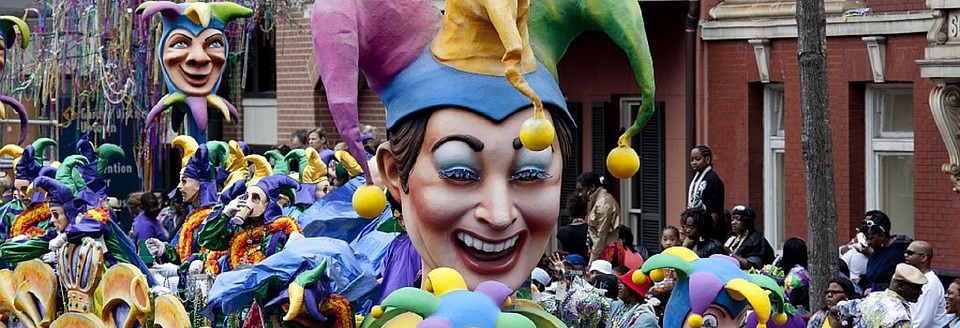Shrove Tuesday is Coming…Don’t Forget to Eat Your Pancakes

As we all know, religious holidays or observances are celebrated or honored different ways in different countries and/or across faiths and those associated with Lent and Easter are no different. Shrove Tuesday, the day prior to Ash Wednesday, has two nicknames depending upon where you’re located. It can be referred to as Fat Tuesday if you’re anywhere near New Orleans, Louisiana, and Pancake Tuesday if you’re in the United Kingdom, Ireland or within the Commonwealth of Nations (former members of the British Empire). So, let’s delve into the origins of Shrove Tuesday and its two nicknames.
The term “shrove” is derived from the Old English word, “shriven” and it generally means to be absolved of sin. And how does one become absolved of sin within the Catholic Church? By confessing your sins to a priest, of course. Thus, prior to the development of Protestantism in the 16th century, most Catholics went to confession to be shriven on Shrove Tuesday. However, since Shrove Tuesday is the day prior to the season of austerity we know as Lent, it also became a day of indulgence.
Lent represents the period Christ spent fasting for 40 days in the wilderness. While a bit longer than 40 days (it’s actually 46 due to the fact that Sundays are omitted) many Christians spent this period of penance fasting in their own manner by relinquishing meat and other luxuries. Today, many Christians give up something dear or of value to them (think chocolate, beer, potato chips and other addictive substances) and/or do not eat meat on Fridays during Lent. While the things given up during Lent have become less, shall we say, severe, over the centuries, the tradition of over-indulging the day prior to the beginning of Lent has stayed with us and that’s where Pancake and Fat Tuesday come in.
This year, Pancake/Fat Tuesday falls on February 25, 47 days prior to Easter which is April 12 (more on why those dates change every year later). The tradition of Pancake Tuesday holds that since we’re about to deny ourselves various things for the next six weeks, it was decided to throw, of course, a pancake party the Tuesday prior to Ash Wednesday. Why pancakes? Many of the ingredients traditionally given up are in pancakes, primarily eggs, butter, fat/lard, and sugar in the form of toppings. If those excess ingredients were not consumed by Pancake Tuesday, they would go to waste over the next six weeks, and no one wasted food in the 16th century! Hence, pancakes became the “chosen one.”
This pancake craze has caused some in Britain to participate in “pancake races” on Pancake Tuesday. The rules are simple: usually local housewives don aprons and head scarves and race to a designated finish line while successfully flipping a still hot pancake in a frying pan at least three times. This seems to have originated way back in 1445 when a woman in Olney lost track of time and heard the local church bell calling parishioners to confession. In her haste to get to confessional, she raced to the church, frying pan (and pancake) in hand.
In America, especially New Orleans, apparently pancakes were not indulgent enough for Shrove Tuesday. Those crazy Cajuns turned most of Shrovetide (the period from Twelfth Night to Holy or Maundy Thursday which commemorates the Last Supper) into a weeks long party. Brazilians refer to this period as Carnival. The American item that is analogous to pancakes is, perhaps, king cake. King, or three king’s cake is eaten throughout Shrovetide, but especially on Fat Tuesday and king cake parties occur outside New Orleans in places as far removed as Pittsburgh, my hometown.
Last thing…the date of Easter is the first Sunday after the Paschal Full Moon which is the first full moon after the vernal equinox, or the first day of spring (and for religious purposes, the vernal equinox is always March 21). Therefore, Easter will always fall between March 22 and April 25. As for why that full moon was chosen to determine the date of Easter, it is thought that early Christian leaders sought to link it to the vernal equinox in a manner similar to how Christmas is tied to the winter solstice and to have it coincide with the Jewish observance of Passover. Now go find a delicious pancake (or king cake) recipe…with toppings. You don’t have much time!
You must be logged in to post a comment.